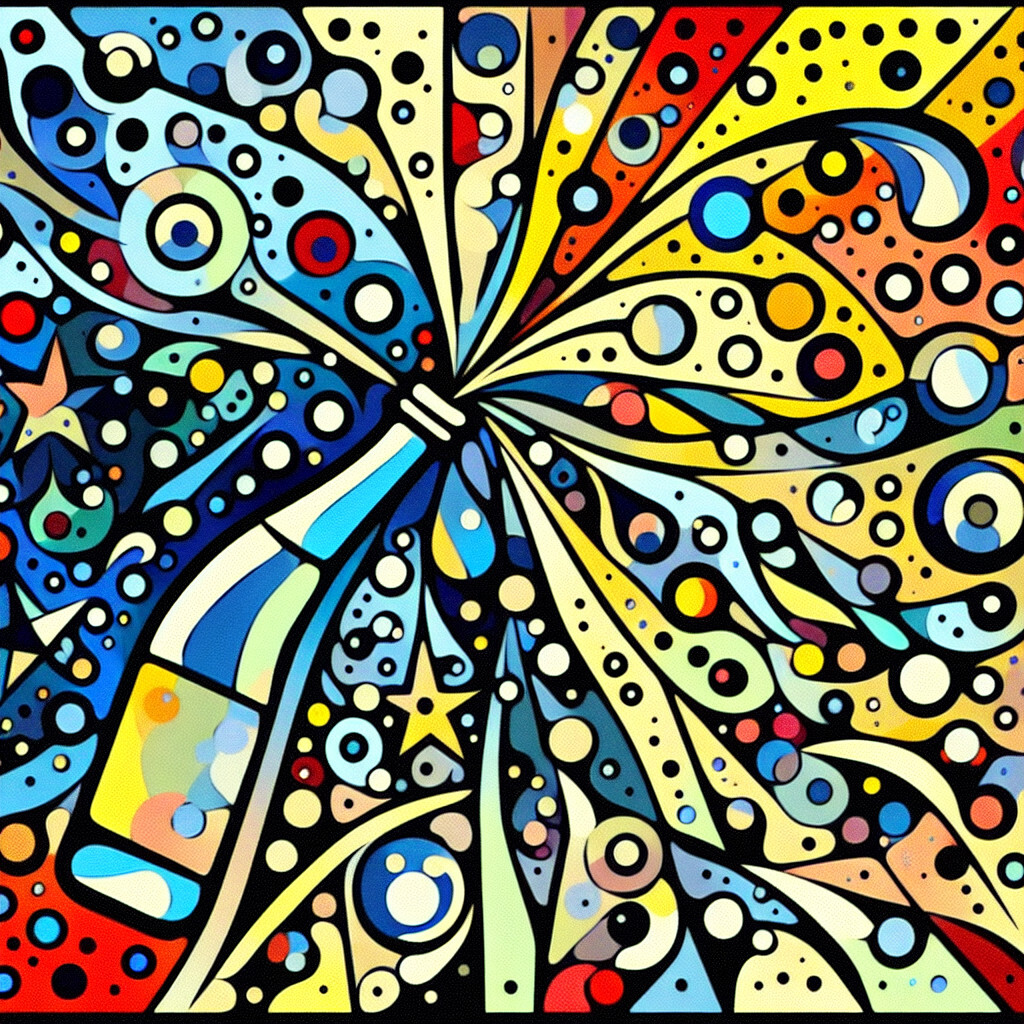-
Table of Contents
“Natural Flavor in Carbonated Water: Nature’s Essence in Every Fizz.”
Introduction

Natural flavor in carbonated water refers to the extracts, essences, or flavors derived from plant or animal sources, such as fruits, vegetables, herbs, spices, and meats. These flavors are added to the carbonated water to enhance its taste. Despite being derived from natural sources, these flavors undergo processing before they are added to the beverage.
Understanding the Role of Natural Flavors in Carbonated Water
Carbonated water, also known as sparkling water, has become a popular beverage choice for many individuals seeking a healthier alternative to sugary sodas and artificially flavored drinks. One of the key elements that contribute to the appeal of carbonated water is the inclusion of natural flavors. However, the term “natural flavors” often raises questions among consumers, leading to a need for a deeper understanding of what it entails and its role in carbonated water.
Natural flavors, as defined by the U.S. Food and Drug Administration (FDA), are derived from plant or animal sources, including fruits, vegetables, spices, meats, poultry, seafood, and dairy. These flavors are extracted, distilled, or otherwise derived from these sources to provide the taste that consumers experience when they consume the product. It’s important to note that the term “natural” does not necessarily mean healthier or safer, but rather that the flavoring agents are derived from natural sources as opposed to being synthetically produced.
In the context of carbonated water, natural flavors are used to enhance the taste of the beverage without adding calories or sugar. This is particularly appealing to health-conscious consumers who are looking for a flavorful yet low-calorie drink. The natural flavors used in carbonated water can range from simple, single-note flavors like lemon or lime, to more complex flavor profiles that mimic the taste of fruits like peach, raspberry, or even exotic flavors like coconut or hibiscus.
The process of adding natural flavors to carbonated water involves several steps. First, the flavoring agents are extracted from their natural sources. This can be done through various methods such as pressing, heating, or using solvents. The extracted flavors are then concentrated and often mixed with other ingredients to create a flavor compound. This compound is then added to the carbonated water during the bottling process.
Despite the appeal of natural flavors, it’s worth noting that the term can sometimes be misleading. While the FDA requires that natural flavors must come from natural sources, the process of extracting and refining these flavors can involve several chemical processes. Furthermore, the natural flavor listed on the label does not have to match the flavor of the final product. For example, a beverage labeled as having natural apple flavor may not necessarily contain flavor extracted from apples. It could be derived from another natural source that gives a similar flavor profile.
In conclusion, natural flavors play a significant role in carbonated water, providing the taste that makes these beverages appealing to many consumers. They offer a way to enjoy a flavorful drink without the added calories or sugar found in many other beverages. However, consumers should be aware that the term “natural flavors” can be somewhat ambiguous and does not necessarily mean the flavor comes directly from the source listed on the label. As with any food or beverage choice, it’s always a good idea to read labels carefully and make informed decisions about what you choose to consume.
The Science Behind Natural Flavors in Your Favorite Carbonated Drinks
Natural flavor in carbonated water is a term that has piqued the curiosity of many consumers. As we become more health-conscious, we are increasingly scrutinizing the ingredients in our food and beverages. Carbonated water, also known as sparkling water, is a popular choice for those seeking a healthier alternative to sugary sodas. But what exactly does ‘natural flavor’ mean in the context of these fizzy drinks?
The term ‘natural flavor’ refers to the flavoring substances derived from plant or animal sources, which are used to enhance the taste of food and beverages. These flavors can be extracted from fruits, vegetables, herbs, spices, and even meats. The extraction process involves distillation, fermentation, or cold pressing to capture the essence of the original source. The resulting flavoring substances are then added to carbonated water to give it a distinct taste.
However, it’s important to note that ‘natural’ does not necessarily mean ‘healthy’. The U.S. Food and Drug Administration (FDA) defines natural flavors as substances extracted from natural sources, but the extraction process can involve various chemicals. Moreover, the term ‘natural flavor’ can encompass a wide range of substances, some of which may not be beneficial to health. For instance, a natural flavor could be high in sugar or contain allergens. Therefore, it’s crucial for consumers to read labels carefully and understand what they’re consuming.
The use of natural flavors in carbonated water is a response to the growing demand for healthier, more natural products. Consumers are increasingly seeking out beverages that are free from artificial flavors and sweeteners. Carbonated water with natural flavors offers a refreshing taste without the high sugar content of traditional sodas. The bubbles in the water also provide a satisfying sensation, making it a popular choice for those looking to cut down on sugary drinks.
However, the taste of natural flavors in carbonated water can vary greatly depending on the source of the flavor and the extraction process. For example, a lemon-flavored sparkling water may taste different from brand to brand due to the type of lemons used, the extraction method, and the other ingredients in the drink. Some brands may use a blend of natural flavors to create a unique taste profile.
In conclusion, natural flavors in carbonated water are derived from plant or animal sources and are used to enhance the taste of the beverage. While these flavors are derived from natural sources, it’s important for consumers to understand that ‘natural’ does not always equate to ‘healthy’. The taste of these natural flavors can vary greatly, offering a wide range of options for consumers seeking a refreshing, fizzy drink. As we continue to prioritize our health and wellness, understanding the science behind the ingredients in our food and beverages is more important than ever.
Decoding the Mystery: What is Natural Flavor in Carbonated Water?
Carbonated water, also known as sparkling water, has become a popular choice for many health-conscious individuals. It offers a refreshing alternative to sugary sodas and flat water, with its effervescent bubbles and subtle flavors. However, one aspect of carbonated water that often raises eyebrows is the term “natural flavor” listed in the ingredients. This term, while seemingly straightforward, is shrouded in mystery for many consumers.
The term “natural flavor” is regulated by the U.S. Food and Drug Administration (FDA). According to the FDA, a natural flavor refers to the essential oil, oleoresin, essence or extractive, protein hydrolysate, distillate, or any product of roasting, heating or enzymolysis, which contains the flavoring constituents derived from a spice, fruit or fruit juice, vegetable or vegetable juice, edible yeast, herb, bark, bud, root, leaf or similar plant material, meat, seafood, poultry, eggs, dairy products, or fermentation products thereof. In simpler terms, natural flavors are derived from real food sources, whether plant or animal.
However, the process of obtaining these flavors is far from simple. It involves extracting the desired flavor compounds from the source material, often through processes like distillation or fermentation. These extracted compounds are then combined in a lab to create a concentrated flavoring agent. This process allows manufacturers to capture the essence of the flavor without including the other elements of the source material, such as sugars or proteins, that may not be desirable in the final product.
Despite the complex process, the use of natural flavors in carbonated water is generally considered safe. The FDA requires that all natural flavors used in food and beverage products be safe for consumption and properly labeled. However, it’s worth noting that just because a flavor is natural doesn’t necessarily mean it’s healthier. For example, a natural strawberry flavor doesn’t contain the same nutrients as a fresh strawberry. It’s simply meant to mimic the taste.
Moreover, the term “natural flavor” doesn’t provide much information about the source of the flavor. For instance, a product labeled with “natural lemon flavor” could be derived from a variety of sources, not necessarily a lemon. This lack of transparency can be problematic for individuals with specific dietary restrictions or allergies.
In conclusion, the term “natural flavor” in carbonated water refers to flavoring agents derived from real food sources and created through a complex extraction process. While these flavors are generally safe for consumption, they don’t offer the same nutritional benefits as their source materials. Furthermore, the term doesn’t provide specific information about the source of the flavor, which can be a concern for some consumers. Therefore, while enjoying the bubbly delight of carbonated water, it’s essential to understand what “natural flavor” truly means.
Natural Flavors in Carbonated Water: Health Implications and Benefits
Natural flavors in carbonated water have become a topic of interest for many health-conscious consumers. As the trend towards healthier beverage options continues to grow, understanding what constitutes these natural flavors and their potential health implications and benefits is crucial.
Natural flavors, as defined by the U.S. Food and Drug Administration (FDA), are derived from plant or animal sources, including fruit, meat, fish, spices, herbs, roots, leaves, buds, or bark. These flavors are extracted, distilled, or otherwise derived from these sources and are used to enhance the taste of food and beverages, including carbonated water.
In the context of carbonated water, natural flavors are typically derived from the essential oils or extracts of fruits, herbs, or spices. These flavors are added to the water during the carbonation process, which involves dissolving carbon dioxide under pressure to create a fizzy sensation. The natural flavors are added to provide a refreshing taste, making the beverage more appealing to consumers.
However, it’s important to note that the term “natural flavors” can be somewhat misleading. While they are derived from natural sources, these flavors often undergo extensive processing and may be combined with other ingredients, including preservatives and sweeteners. Therefore, a beverage labeled as containing natural flavors may not be as “natural” as one might assume.
Regarding health implications, natural flavors in carbonated water are generally considered safe for consumption. The FDA regulates the use of these flavors, ensuring they meet specific safety standards. However, for individuals with food allergies or sensitivities, natural flavors can pose a risk as the specific ingredients are not always disclosed on the product label.
Moreover, while carbonated water with natural flavors is a healthier alternative to sugary sodas, it’s essential to be mindful of the potential for overconsumption. Some flavored carbonated waters can be quite enticing, leading individuals to drink more than they might with plain water. While this can contribute to better hydration, it can also lead to excessive intake of certain natural flavors, which may have unknown long-term health effects.
On the flip side, there are several potential benefits to consuming carbonated water with natural flavors. Firstly, for those who struggle to consume adequate amounts of water, flavored carbonated water can make hydration more enjoyable, thereby promoting better hydration habits.
Secondly, carbonated water can aid in digestion. Studies have shown that it can help alleviate symptoms of indigestion and constipation. The addition of natural flavors like ginger or mint, known for their digestive benefits, can further enhance these effects.
Lastly, choosing carbonated water with natural flavors over sugary beverages can significantly reduce sugar and calorie intake, contributing to better overall health and weight management.
In conclusion, natural flavors in carbonated water are derived from plant or animal sources and are used to enhance the taste of the beverage. While generally safe for consumption, these flavors can pose risks for individuals with food allergies or sensitivities and may lead to overconsumption. However, flavored carbonated water can also offer several benefits, including promoting better hydration, aiding in digestion, and reducing sugar and calorie intake. As with any food or beverage, moderation and awareness are key to enjoying the benefits while minimizing potential risks.
Q&A
1. Question: What is natural flavor in carbonated water?
Answer: Natural flavor in carbonated water refers to flavors derived from fruits, spices, plants, or other natural sources that are added to enhance the taste of the water.
2. Question: How is natural flavor added to carbonated water?
Answer: Natural flavor is added to carbonated water during the manufacturing process. The flavoring substances are extracted from natural sources and then infused into the water.
3. Question: Are natural flavors in carbonated water healthy?
Answer: Natural flavors in carbonated water are generally considered safe for consumption. However, they do not add any nutritional value to the water.
4. Question: Can natural flavors in carbonated water cause allergies?
Answer: Yes, some people may have allergies to certain natural flavors used in carbonated water. It’s always best to check the label for specific ingredients if you have known food allergies.
Conclusion
Natural flavor in carbonated water refers to flavors derived from plant or animal sources, such as fruits, vegetables, spices, or dairy. These flavors are added to enhance the taste of the water, making it more appealing to consumers. Despite being derived from natural sources, these flavors undergo processing before they are added to the water.





